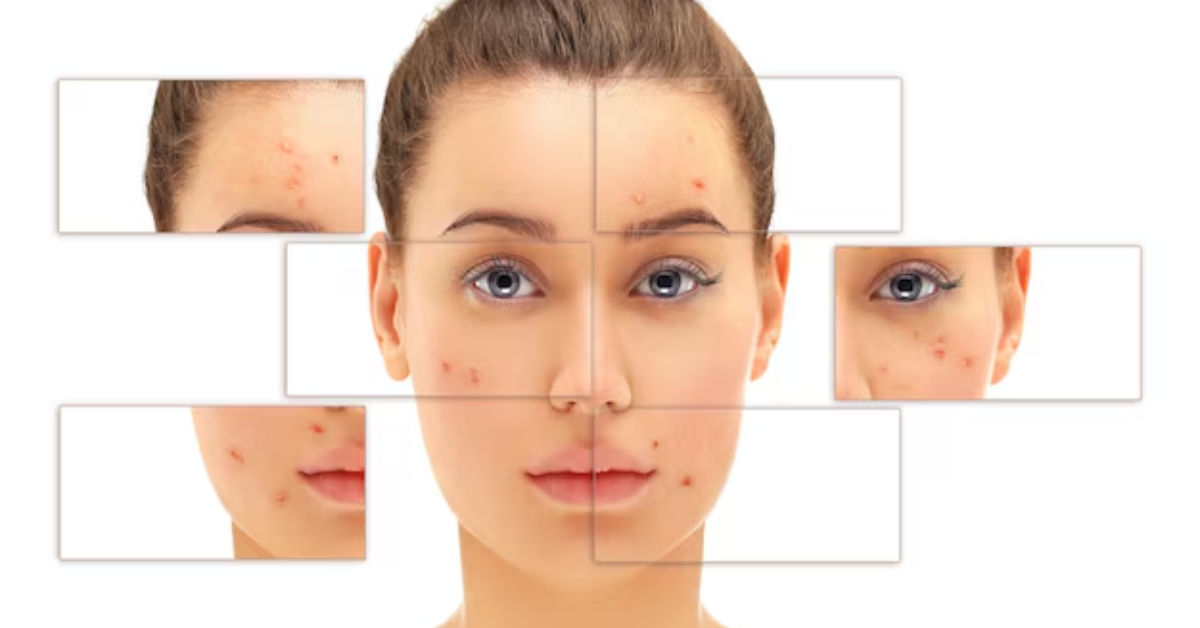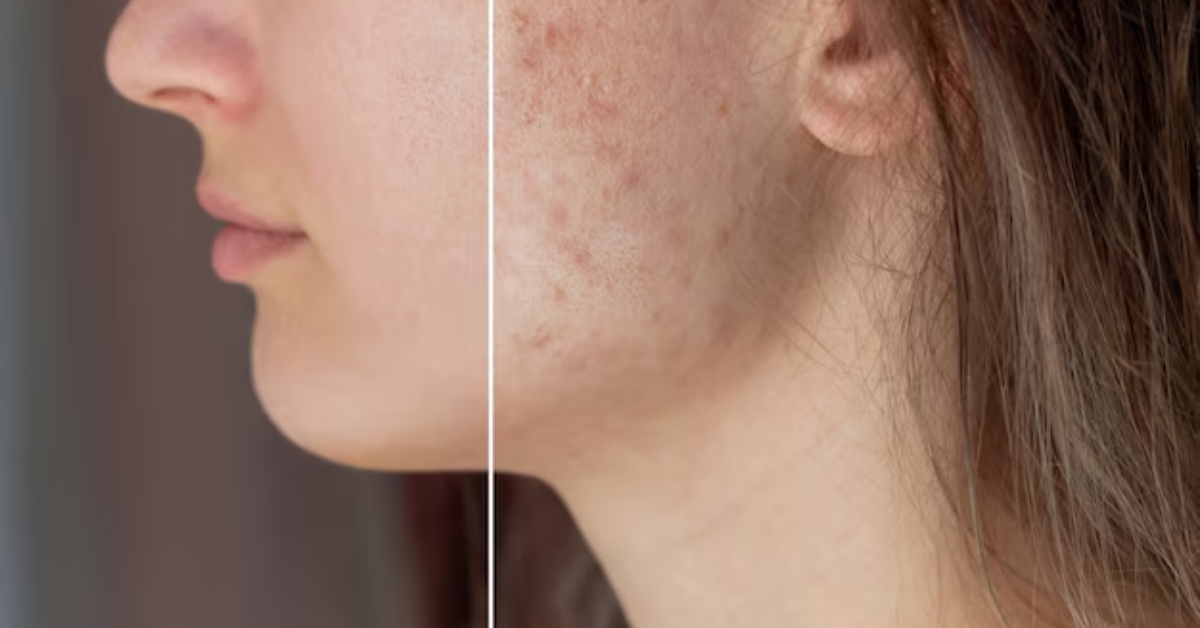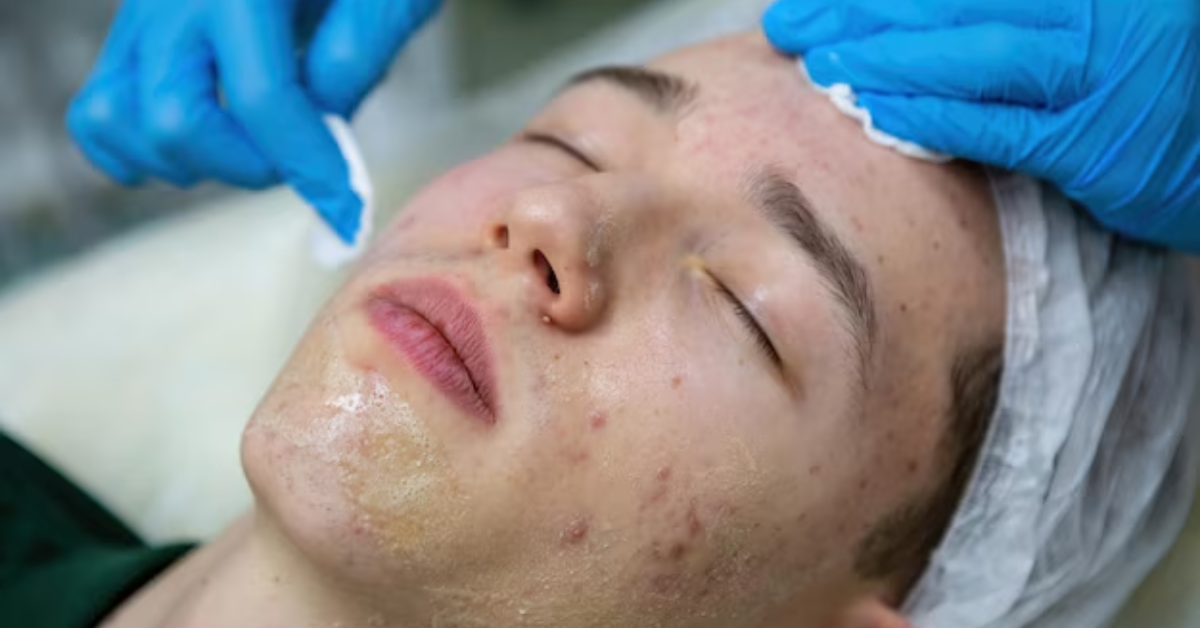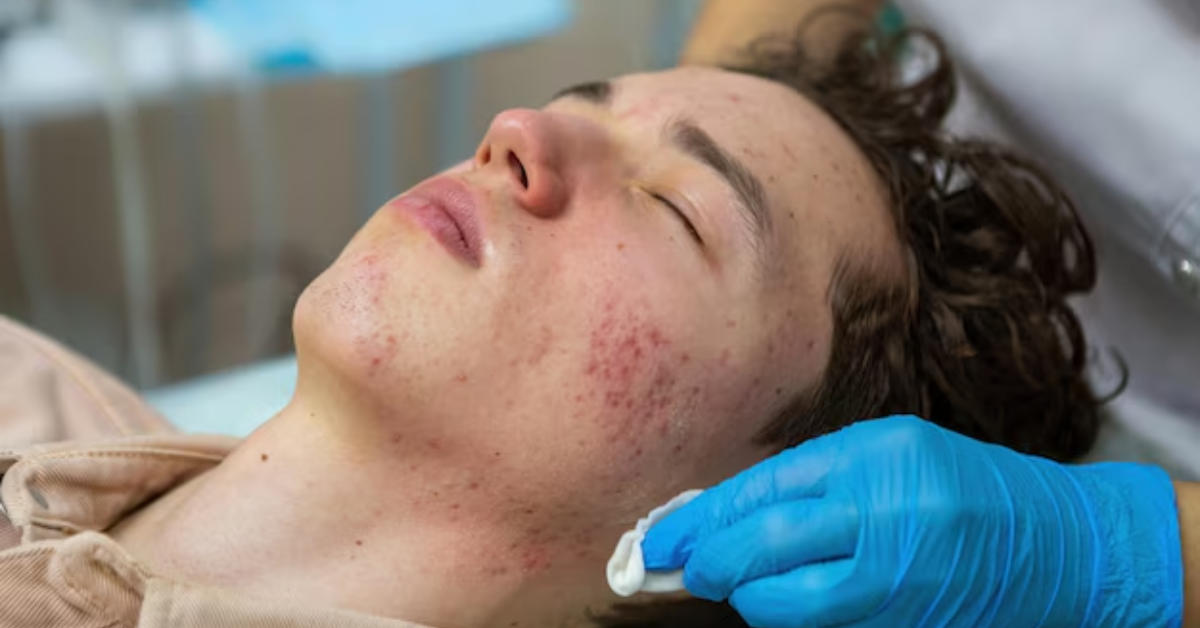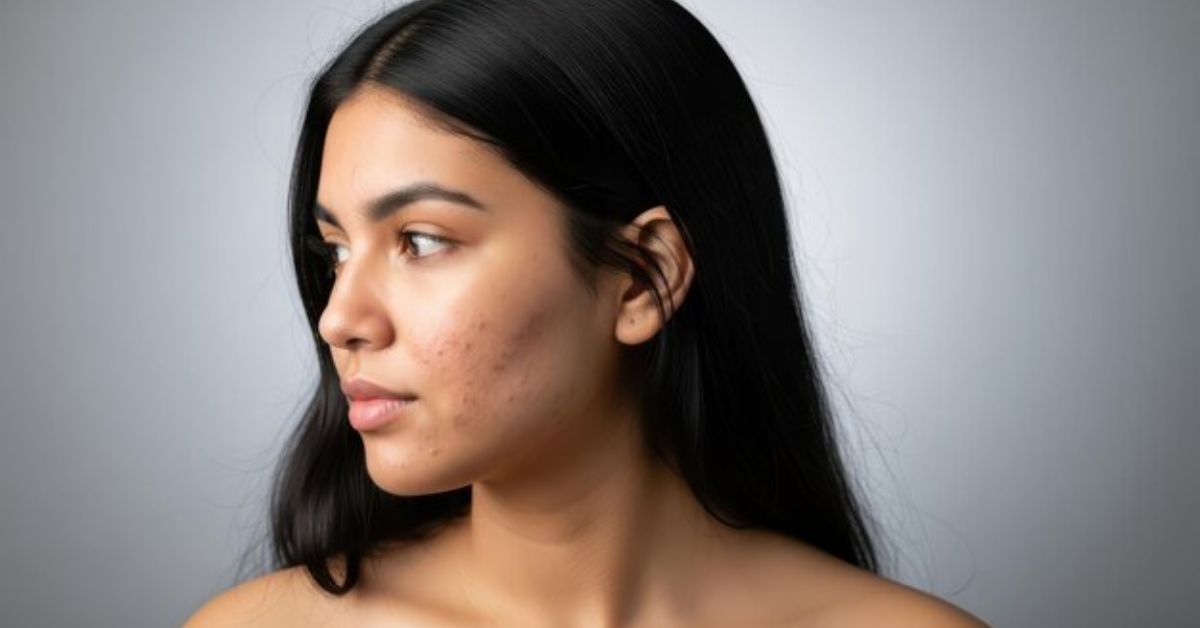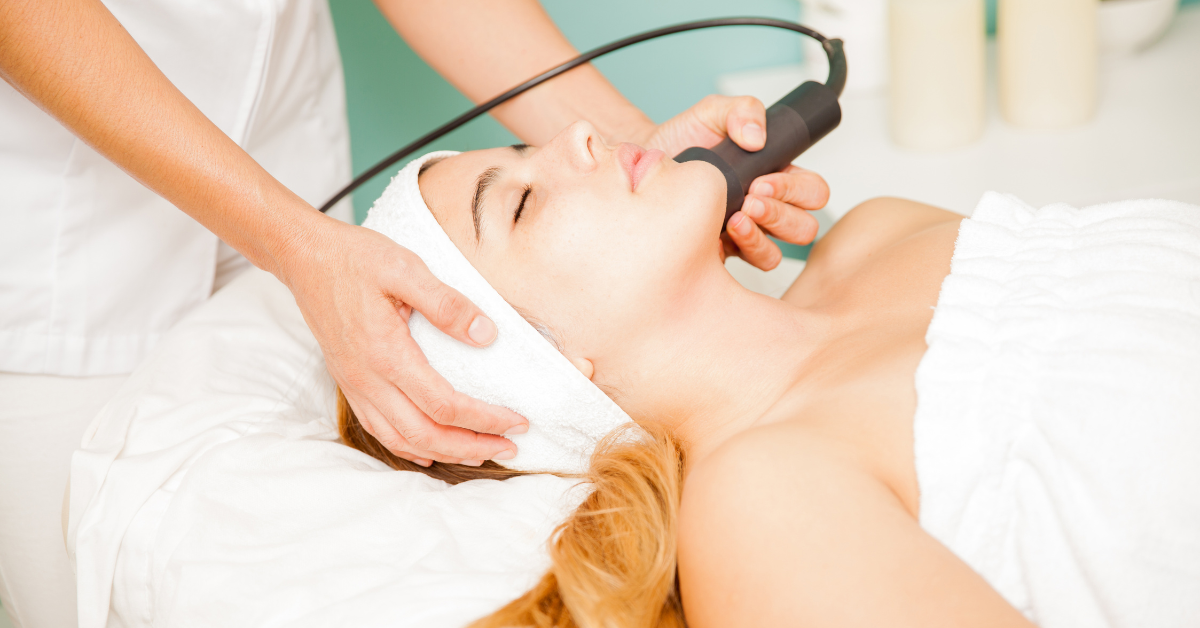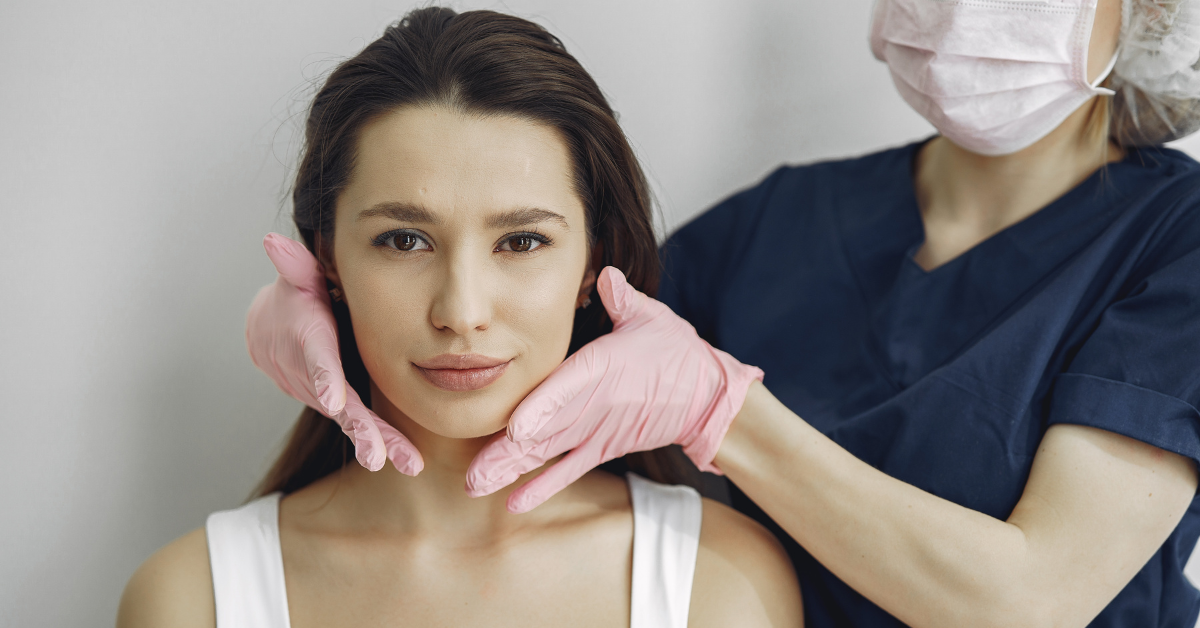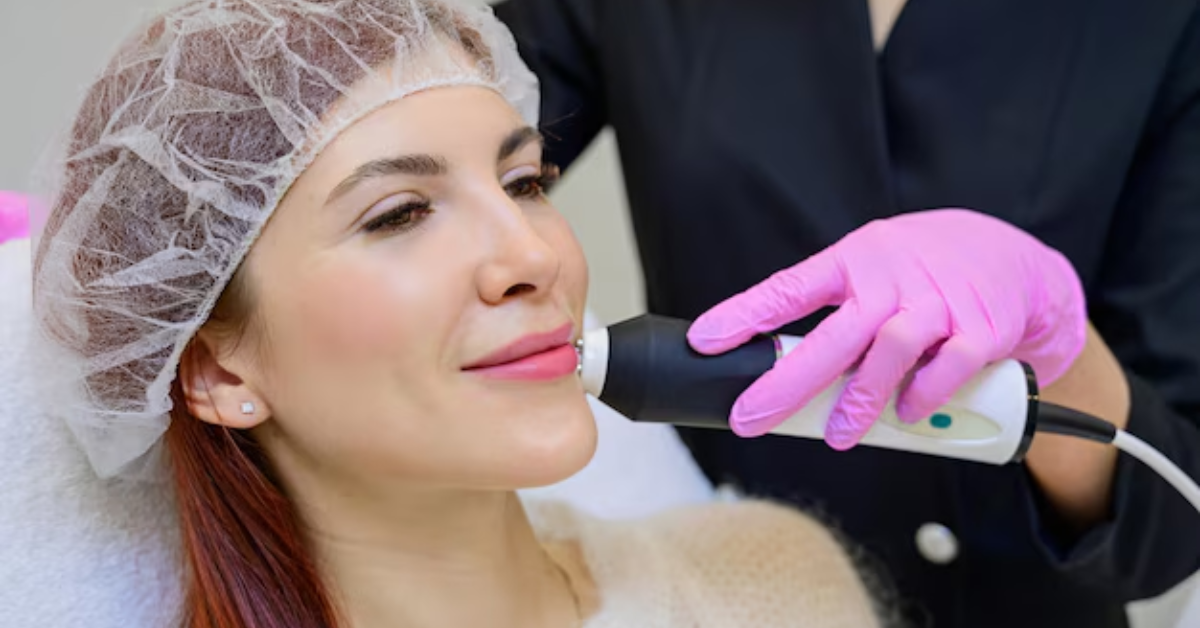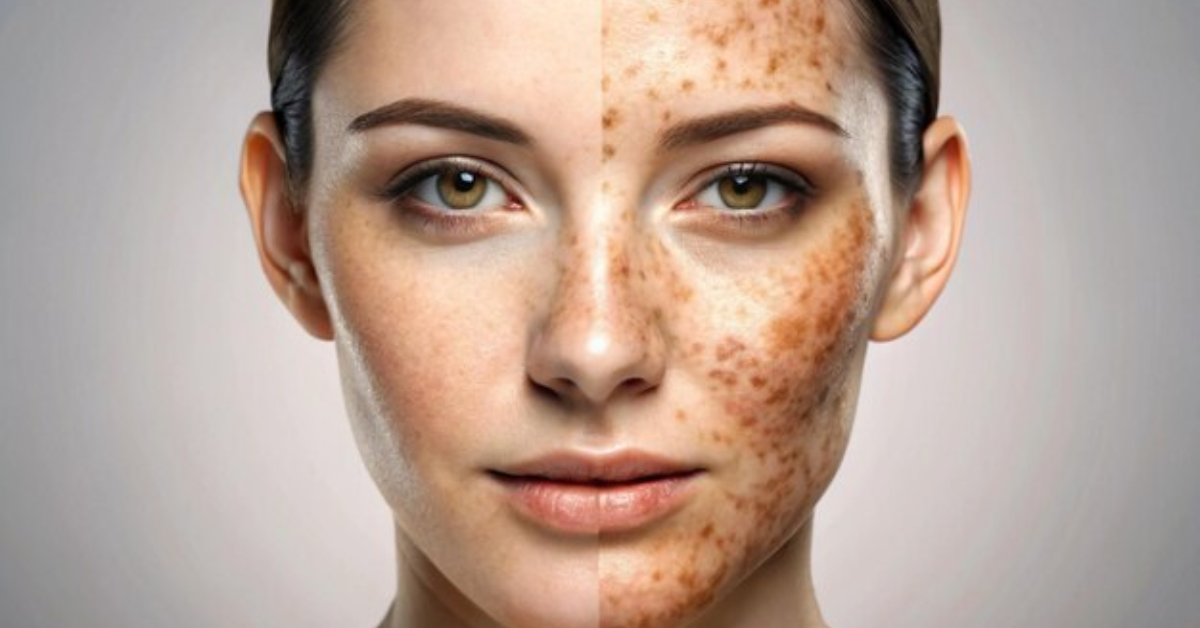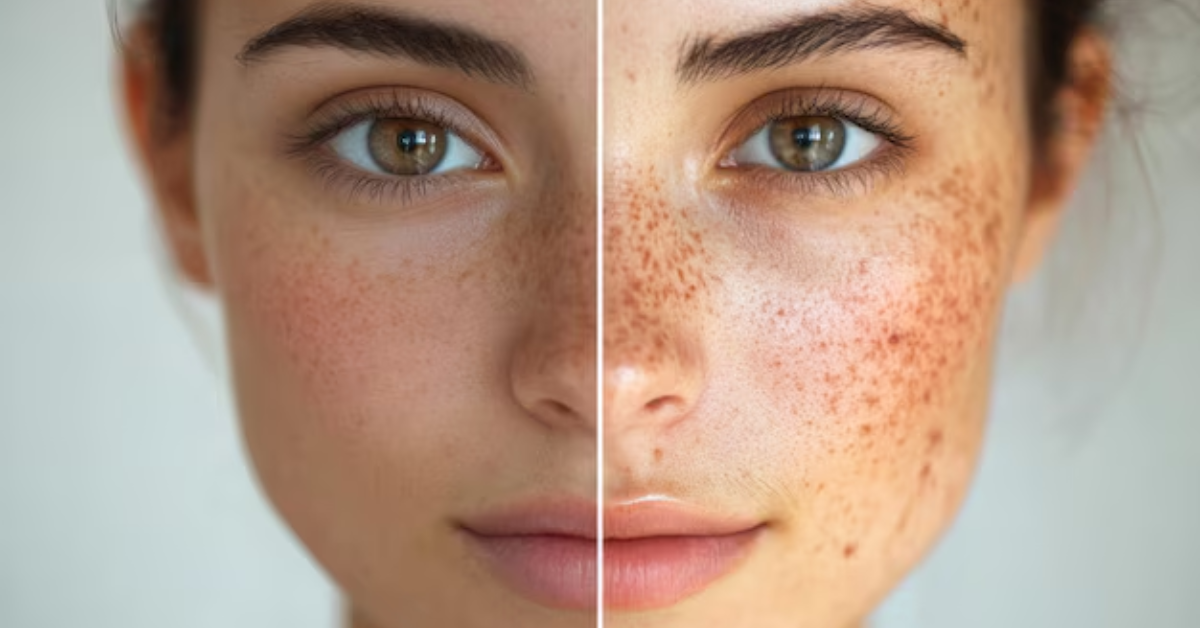Are Hydrafacials Good For Acne?
If you've ever struggled with acne, you know how frustrating it can be to find an effective treatment. In recent years, one skincare treatment has gained popularity for its promise to tackle acne and improve overall skin health: the Hydrafacial. But what exactly is a Hydrafacial, and how does it work? Let's break it down.
A Hydrafacial is a non-invasive skincare treatment that combines exfoliation, extraction, hydration, and infusion of serums into one rejuvenating session. Unlike traditional facials that might focus on one or two aspects of skincare, a Hydrafacial addresses multiple concerns in a single treatment, making it a favorite among skincare enthusiasts and dermatologists alike.
How does a Hydrafacial work?
The magic of a Hydrafacial lies in its unique multi-step process:
Cleansing and Exfoliation: The treatment begins with a gentle cleansing of the skin to remove any dirt, oil, and impurities. Next, a specialized exfoliating tool is used to remove dead skin cells, revealing a smoother and brighter complexion.
Acid Peel: Following exfoliation, a mild chemical peel solution containing glycolic acid or salicylic acid is applied to the skin. This helps to loosen dirt and debris from the pores, making extractions more effective and preparing the skin for hydration.
Extraction: Using a gentle suction device, the aesthetician performs painless extractions to clear out impurities from the pores. This step helps to unclog pores and reduce the appearance of blackheads and whiteheads, a common concern for those with acne-prone skin.
Hydration and Infusion: Finally, the skin is replenished with nourishing serums rich in antioxidants, peptides, and hyaluronic acid. These serums are tailored to address specific skin concerns, such as acne, dryness, or uneven texture, leaving the skin feeling hydrated, plump, and radiant.
Hydrafacial works by deeply cleansing and exfoliating the skin, extracting impurities, and infusing it with potent serums to promote overall skin health and address specific concerns like acne.
What Acne Is?
Acne is a common skin condition that occurs when hair follicles become clogged with oil and dead skin cells. It often manifests as pimples, blackheads, whiteheads, or cysts, and can appear on various parts of the body, though it's most commonly found on the face, chest, back, and shoulders.
Types of Acne
Whiteheads: These are small, closed bumps that appear white or flesh-colored. They form when pores become clogged with oil and dead skin cells, trapping them beneath the surface of the skin.
Blackheads: Unlike whiteheads, blackheads have an open surface, allowing the trapped oil and dead skin cells to oxidize and turn black. They typically appear as small dark spots on the skin.
Papules: Papules are small, red, inflamed bumps that can be tender to the touch. They occur when the walls of hair follicles become damaged due to inflammation, leading to the formation of raised lesions.
Pustules: Similar to papules, pustules are red, inflamed bumps, but they also contain pus at the top. They may appear as small white or yellowish bumps on the skin's surface.
Nodules: Nodules are large, painful, solid lesions that form deep within the skin. They develop when clogged pores become further irritated, leading to the formation of hard, swollen bumps.
Cysts: Cysts are the most severe form of acne lesions and are characterized by large, pus-filled lumps beneath the skin's surface. They can be painful and may cause scarring if not treated properly.
Causes of Acne Breakouts
Several factors can contribute to the development of acne breakouts:
Excess Oil Production:
The skin naturally produces oil (sebum) to keep it hydrated and protected. However, an overproduction of oil can lead to clogged pores and acne.
Clogged Pores: When oil and dead skin cells accumulate within hair follicles, they can form plugs, leading to the development of acne lesions.
Bacteria: The presence of certain bacteria, particularly Propionibacterium acnes (P. acnes), can contribute to the inflammation and worsening of acne.
Hormonal Changes: Hormonal fluctuations, such as those that occur during puberty, menstruation, pregnancy, or hormonal disorders, can trigger an increase in oil production and lead to acne breakouts.
Genetics: A family history of acne can increase an individual's likelihood of developing the condition.
Diet and Lifestyle Factors: Certain dietary choices, such as consuming high-glycemic foods or dairy products, as well as factors like stress and inadequate skincare habits, may contribute to the development of acne.
Understanding the various types of acne and the factors that can cause breakouts is essential for effectively managing and treating the condition. By addressing underlying causes and adopting appropriate skincare practices, individuals can help reduce the frequency and severity of acne breakouts and improve the overall health and appearance of their skin.
The Promise of Hydrafacials for Acne
Hydrafacials have garnered attention for their ability to address various skin concerns, including acne. Many people wonder: Can Hydrafacials really help with acne?
The short answer is yes, Hydrafacials can be beneficial for acne-prone skin. These treatments offer a multi-step approach that effectively cleanses, exfoliates, extracts impurities, and hydrates the skin, all of which can contribute to improving acne symptoms.
So,
how do Hydrafacials work to combat acne?
- Hydrafacials start with a thorough cleansing of the skin, removing excess oil, dirt, and debris that can clog pores and contribute to acne breakouts.
- A gentle exfoliation step helps to slough off dead skin cells, preventing them from accumulating and further clogging pores.
- Using a specialized suction tool, Hydrafacials extract impurities from the pores, including blackheads and whiteheads. By clearing out these blockages, the risk of future breakouts is reduced.
- The final step of a Hydrafacial involves infusing the skin with hydrating and nourishing serums. These serums contain ingredients like hyaluronic acid, antioxidants, and peptides, which help to soothe inflammation, promote healing, and restore balance to the skin.
By addressing multiple factors contributing to acne, Hydrafacials can help improve the overall health and appearance of the skin, leading to a reduction in acne breakouts and a clearer complexion.
Research and Evidence
While anecdotal evidence suggests that Hydrafacials can be beneficial for acne, it's essential to consider the available research and clinical studies.
Several studies have investigated the efficacy of Hydrafacials for acne treatment, with promising results. These studies have shown improvements in acne severity, reduction in lesion counts, and overall enhancement of skin texture and tone following Hydrafacial treatments. Dermatologists and skincare experts often praise Hydrafacials for their versatility and effectiveness in addressing various skin concerns, including acne. Many individuals who have undergone Hydrafacial treatments report noticeable improvements in their acne symptoms and overall skin health. While individual experiences may vary, the consensus among experts and users alike is that Hydrafacials can indeed be a valuable tool in the management of acne-prone skin.
Benefits of Hydrafacials for Acne
Hydrafacials offer several benefits for individuals dealing with acne-prone skin:
Reduction in Acne Severity:
- One of the primary benefits of Hydrafacials is their ability to reduce the severity of acne breakouts. By deeply cleansing the pores, extracting impurities, and infusing the skin with nourishing serums, Hydrafacials can help minimize inflammation, decrease the number of active lesions, and promote faster healing of existing acne.
Improvement in Skin Texture and Tone:
- In addition to targeting acne, Hydrafacials can also lead to significant improvements in overall skin texture and tone. The exfoliation and hydration components of the treatment help to smooth the skin's surface, minimize the appearance of acne scars and hyperpigmentation, and create a more radiant complexion.
Considerations and Limitations
While Hydrafacials can be beneficial for many individuals dealing with acne, it's important to consider certain factors:
Suitability for Different Skin Types: While Hydrafacials are generally safe for most skin types, including sensitive and acne-prone skin, it's essential to consult with a qualified skincare professional before undergoing treatment. They can assess your skin's specific needs and determine whether Hydrafacials are suitable for you.
Potential Side Effects or Risks:
While rare, some individuals may experience mild side effects following Hydrafacial treatment, such as temporary redness, sensitivity, or dryness. In rare cases, more severe reactions like allergic reactions or infections may occur. It's crucial to follow post-treatment care instructions provided by your skincare professional to minimize the risk of complications.
Overall, Hydrafacials offer numerous benefits for individuals struggling with acne, including a reduction in acne severity and improvements in skin texture and tone. However, it's essential to consider factors like suitability for different skin types and potential side effects before undergoing treatment. By consulting with a qualified skincare professional and following proper skincare practices, you can maximize the benefits of Hydrafacials while minimizing the risks.
Comparison with Other Acne Treatments
When it comes to treating acne, Hydrafacials offer several advantages compared to other treatments:
Versatility:
Unlike some acne treatments that target specific types of acne or skin concerns, Hydrafacials are versatile and can address multiple issues in a single treatment session, including acne, uneven skin tone, and dehydration.
Non-Invasive Nature: Many acne treatments, such as chemical peels or laser therapy, can be invasive and require downtime for recovery. Hydrafacials, on the other hand, are non-invasive and typically have minimal to no downtime, making them suitable for individuals with busy lifestyles.
Customization: Hydrafacials can be customized to meet the unique needs of each individual's skin. Skincare professionals can adjust the intensity of exfoliation, the types of serums used, and other parameters based on factors like skin type, concerns, and sensitivity.
Combining Hydrafacials with Other Skincare Routines
While Hydrafacials can be effective as standalone treatments for acne, they can also complement other skincare routines:
Topical Treatments:
- Skincare professionals may recommend combining Hydrafacials with topical treatments, such as prescription medications or over-the-counter acne products, to enhance results. These treatments can target acne-causing bacteria, regulate oil production, or promote skin cell turnover.
Professional Treatments:
- Some individuals may benefit from combining Hydrafacials with other professional treatments, such as microneedling or light therapy, to further address acne and improve overall skin health.
Consistent Skincare Regimen:
- Incorporating Hydrafacials into a consistent skincare regimen that includes gentle cleansers, moisturizers, and sun protection can help maintain the results of the treatment and prevent future breakouts.
Tips for Maximizing Results
To get the most out of your Hydrafacial treatment, consider the following tips:
- Before your Hydrafacial appointment, it's essential to cleanse your skin thoroughly and avoid using any harsh skincare products that could irritate the skin.
- After your Hydrafacial, be sure to follow any post-treatment instructions provided by your skincare professional, such as avoiding sun exposure, using gentle skincare products, and staying hydrated.
- Consistent skincare maintenance can help prolong the results of your Hydrafacial and keep your skin looking its best.
Conclusion
Hydrafacials have emerged as a promising treatment option for individuals dealing with acne, offering a multifaceted approach that effectively targets acne lesions while improving overall skin health. With their ability to reduce acne severity, enhance skin texture and tone, and provide customizable solutions for various skin types, Hydrafacials have garnered praise from both skincare professionals and individuals seeking clearer, healthier skin. For those considering Hydrafacial treatment, it's essential to consult with a qualified skincare professional to determine the suitability of the treatment and to follow proper pre- and post-care instructions for optimal results. Achieve
clearer skin with
LED light therapy, a gentle yet effective solution for
cystic acne. This non-invasive treatment helps reduce inflammation, kill acne-causing bacteria, and promote healing for a smoother, healthier complexion.

